HSBC 2008 Annual Report Download - page 15
Download and view the complete annual report
Please find page 15 of the 2008 HSBC annual report below. You can navigate through the pages in the report by either clicking on the pages listed below, or by using the keyword search tool below to find specific information within the annual report.-
 1
1 -
 2
2 -
 3
3 -
 4
4 -
 5
5 -
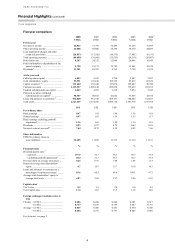 6
6 -
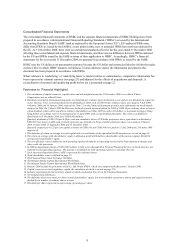 7
7 -
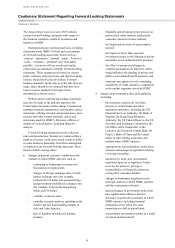 8
8 -
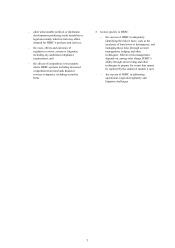 9
9 -
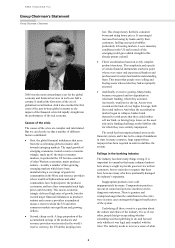 10
10 -
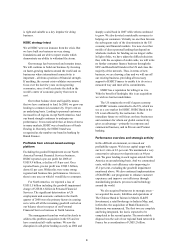 11
11 -
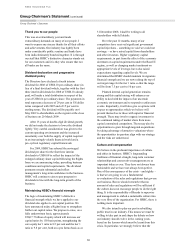 12
12 -
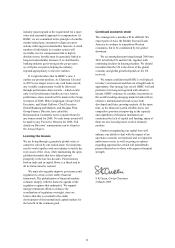 13
13 -
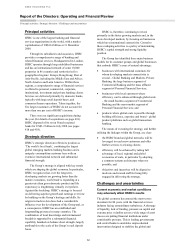 14
14 -
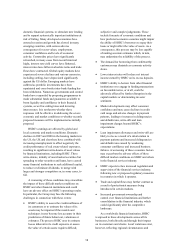 15
15 -
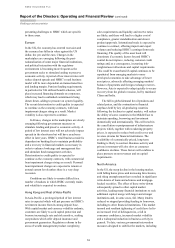 16
16 -
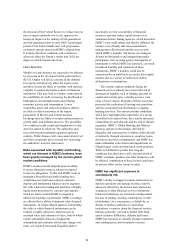 17
17 -
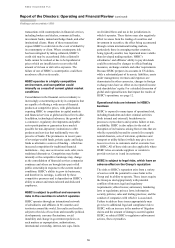 18
18 -
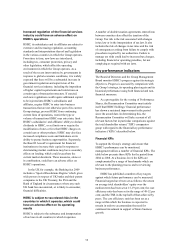 19
19 -
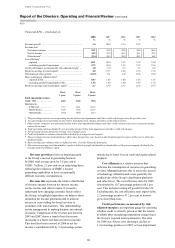 20
20 -
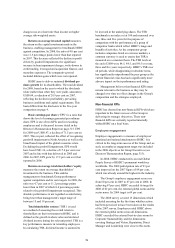 21
21 -
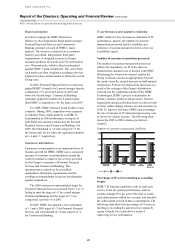 22
22 -
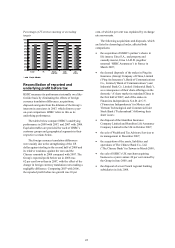 23
23 -
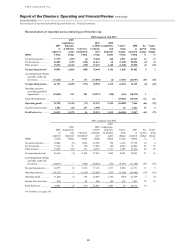 24
24 -
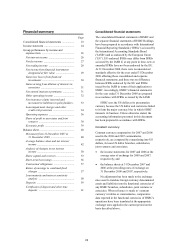 25
25 -
 26
26 -
 27
27 -
 28
28 -
 29
29 -
 30
30 -
 31
31 -
 32
32 -
 33
33 -
 34
34 -
 35
35 -
 36
36 -
 37
37 -
 38
38 -
 39
39 -
 40
40 -
 41
41 -
 42
42 -
 43
43 -
 44
44 -
 45
45 -
 46
46 -
 47
47 -
 48
48 -
 49
49 -
 50
50 -
 51
51 -
 52
52 -
 53
53 -
 54
54 -
 55
55 -
 56
56 -
 57
57 -
 58
58 -
 59
59 -
 60
60 -
 61
61 -
 62
62 -
 63
63 -
 64
64 -
 65
65 -
 66
66 -
 67
67 -
 68
68 -
 69
69 -
 70
70 -
 71
71 -
 72
72 -
 73
73 -
 74
74 -
 75
75 -
 76
76 -
 77
77 -
 78
78 -
 79
79 -
 80
80 -
 81
81 -
 82
82 -
 83
83 -
 84
84 -
 85
85 -
 86
86 -
 87
87 -
 88
88 -
 89
89 -
 90
90 -
 91
91 -
 92
92 -
 93
93 -
 94
94 -
 95
95 -
 96
96 -
 97
97 -
 98
98 -
 99
99 -
 100
100 -
 101
101 -
 102
102 -
 103
103 -
 104
104 -
 105
105 -
 106
106 -
 107
107 -
 108
108 -
 109
109 -
 110
110 -
 111
111 -
 112
112 -
 113
113 -
 114
114 -
 115
115 -
 116
116 -
 117
117 -
 118
118 -
 119
119 -
 120
120 -
 121
121 -
 122
122 -
 123
123 -
 124
124 -
 125
125 -
 126
126 -
 127
127 -
 128
128 -
 129
129 -
 130
130 -
 131
131 -
 132
132 -
 133
133 -
 134
134 -
 135
135 -
 136
136 -
 137
137 -
 138
138 -
 139
139 -
 140
140 -
 141
141 -
 142
142 -
 143
143 -
 144
144 -
 145
145 -
 146
146 -
 147
147 -
 148
148 -
 149
149 -
 150
150 -
 151
151 -
 152
152 -
 153
153 -
 154
154 -
 155
155 -
 156
156 -
 157
157 -
 158
158 -
 159
159 -
 160
160 -
 161
161 -
 162
162 -
 163
163 -
 164
164 -
 165
165 -
 166
166 -
 167
167 -
 168
168 -
 169
169 -
 170
170 -
 171
171 -
 172
172 -
 173
173 -
 174
174 -
 175
175 -
 176
176 -
 177
177 -
 178
178 -
 179
179 -
 180
180 -
 181
181 -
 182
182 -
 183
183 -
 184
184 -
 185
185 -
 186
186 -
 187
187 -
 188
188 -
 189
189 -
 190
190 -
 191
191 -
 192
192 -
 193
193 -
 194
194 -
 195
195 -
 196
196 -
 197
197 -
 198
198 -
 199
199 -
 200
200 -
 201
201 -
 202
202 -
 203
203 -
 204
204 -
 205
205 -
 206
206 -
 207
207 -
 208
208 -
 209
209 -
 210
210 -
 211
211 -
 212
212 -
 213
213 -
 214
214 -
 215
215 -
 216
216 -
 217
217 -
 218
218 -
 219
219 -
 220
220 -
 221
221 -
 222
222 -
 223
223 -
 224
224 -
 225
225 -
 226
226 -
 227
227 -
 228
228 -
 229
229 -
 230
230 -
 231
231 -
 232
232 -
 233
233 -
 234
234 -
 235
235 -
 236
236 -
 237
237 -
 238
238 -
 239
239 -
 240
240 -
 241
241 -
 242
242 -
 243
243 -
 244
244 -
 245
245 -
 246
246 -
 247
247 -
 248
248 -
 249
249 -
 250
250 -
 251
251 -
 252
252 -
 253
253 -
 254
254 -
 255
255 -
 256
256 -
 257
257 -
 258
258 -
 259
259 -
 260
260 -
 261
261 -
 262
262 -
 263
263 -
 264
264 -
 265
265 -
 266
266 -
 267
267 -
 268
268 -
 269
269 -
 270
270 -
 271
271 -
 272
272 -
 273
273 -
 274
274 -
 275
275 -
 276
276 -
 277
277 -
 278
278 -
 279
279 -
 280
280 -
 281
281 -
 282
282 -
 283
283 -
 284
284 -
 285
285 -
 286
286 -
 287
287 -
 288
288 -
 289
289 -
 290
290 -
 291
291 -
 292
292 -
 293
293 -
 294
294 -
 295
295 -
 296
296 -
 297
297 -
 298
298 -
 299
299 -
 300
300 -
 301
301 -
 302
302 -
 303
303 -
 304
304 -
 305
305 -
 306
306 -
 307
307 -
 308
308 -
 309
309 -
 310
310 -
 311
311 -
 312
312 -
 313
313 -
 314
314 -
 315
315 -
 316
316 -
 317
317 -
 318
318 -
 319
319 -
 320
320 -
 321
321 -
 322
322 -
 323
323 -
 324
324 -
 325
325 -
 326
326 -
 327
327 -
 328
328 -
 329
329 -
 330
330 -
 331
331 -
 332
332 -
 333
333 -
 334
334 -
 335
335 -
 336
336 -
 337
337 -
 338
338 -
 339
339 -
 340
340 -
 341
341 -
 342
342 -
 343
343 -
 344
344 -
 345
345 -
 346
346 -
 347
347 -
 348
348 -
 349
349 -
 350
350 -
 351
351 -
 352
352 -
 353
353 -
 354
354 -
 355
355 -
 356
356 -
 357
357 -
 358
358 -
 359
359 -
 360
360 -
 361
361 -
 362
362 -
 363
363 -
 364
364 -
 365
365 -
 366
366 -
 367
367 -
 368
368 -
 369
369 -
 370
370 -
 371
371 -
 372
372 -
 373
373 -
 374
374 -
 375
375 -
 376
376 -
 377
377 -
 378
378 -
 379
379 -
 380
380 -
 381
381 -
 382
382 -
 383
383 -
 384
384 -
 385
385 -
 386
386 -
 387
387 -
 388
388 -
 389
389 -
 390
390 -
 391
391 -
 392
392 -
 393
393 -
 394
394 -
 395
395 -
 396
396 -
 397
397 -
 398
398 -
 399
399 -
 400
400 -
 401
401 -
 402
402 -
 403
403 -
 404
404 -
 405
405 -
 406
406 -
 407
407 -
 408
408 -
 409
409 -
 410
410 -
 411
411 -
 412
412 -
 413
413 -
 414
414 -
 415
415 -
 416
416 -
 417
417 -
 418
418 -
 419
419 -
 420
420 -
 421
421 -
 422
422 -
 423
423 -
 424
424 -
 425
425 -
 426
426 -
 427
427 -
 428
428 -
 429
429 -
 430
430 -
 431
431 -
 432
432 -
 433
433 -
 434
434 -
 435
435 -
 436
436 -
 437
437 -
 438
438 -
 439
439 -
 440
440 -
 441
441 -
 442
442 -
 443
443 -
 444
444 -
 445
445 -
 446
446 -
 447
447 -
 448
448 -
 449
449 -
 450
450 -
 451
451 -
 452
452 -
 453
453 -
 454
454 -
 455
455 -
 456
456 -
 457
457 -
 458
458 -
 459
459 -
 460
460 -
 461
461 -
 462
462 -
 463
463 -
 464
464 -
 465
465 -
 466
466 -
 467
467 -
 468
468 -
 469
469 -
 470
470 -
 471
471 -
 472
472
 |
 |
13
domestic financial systems, to stimulate new lending
and to support systemically important institutions at
risk of failing. Many developed economies have
entered recession and growth has slowed in many
emerging countries, with serious adverse
consequences for asset values, employment,
consumer confidence and levels of economic
activity. Commodity prices have significantly
retrenched, in many cases from recent historical
highs, interest rate yield curves have flattened,
interest rates have fallen in absolute terms and trade
flows have contracted. Global equity markets have
experienced severe declines and various currencies,
including sterling, have depreciated significantly
against the US dollar. Emerging markets have
suffered as portfolio investments have been
repatriated and cross-border inter-bank funding has
been withdrawn. Numerous governments and central
banks have responded by proposing programmes to
make substantial funds and guarantees available to
boost liquidity and confidence in their financial
systems, as well as cutting taxes and lowering
interest rates. It is not known whether these
responses will be effective in addressing the severe
economic and market conditions or whether recently
proposed measures will be implemented as initially
proposed.
HSBC’s earnings are affected by global and
local economic and market conditions. Dramatic
declines in 2007 and 2008 in the housing markets in
the US, the UK and elsewhere have combined with
increasing unemployment to affect negatively the
credit performance of real estate-related exposures,
resulting in significant write-downs of asset values
by financial institutions, including HSBC. These
write-downs, initially of asset-backed securities but
spreading to other securities and loans, have caused
many financial institutions to seek additional capital,
to reduce or eliminate dividends, to merge with
larger and stronger competitors or, in some cases, to
fail.
A worsening of these conditions may exacerbate
the impact of these difficult market conditions on
HSBC and other financial institutions and could
have an adverse effect on HSBC’s operating results.
In particular, the Group may face the following
challenges in connection with these events:
• HSBC’s ability to assess the creditworthiness of
its customers or to estimate the values of its
assets may be impaired if the models and
techniques it uses become less accurate in their
predictions of future behaviour, valuations or
estimates. The process HSBC uses to estimate
losses inherent in its credit exposure or assess
the value of certain assets requires difficult,
subjective and complex judgements. These
include forecasts of economic conditions and
how predicted economic scenarios might impair
the ability of HSBC’s borrowers to repay their
loans or might affect the value of assets. As a
consequence, this process may be less capable
of making accurate estimates which, in turn,
may undermine the reliability of the process.
• The demand for borrowing from creditworthy
customers may diminish as economic activity
slows.
• Lower interest rates will reduce net interest
income earned by HSBC on its excess deposits.
• HSBC’s ability to borrow from other financial
institutions or to engage in funding transactions
on favourable terms, or at all, could be
adversely affected by further disruption in the
capital markets or deteriorating investor
sentiment.
• Market developments may affect consumer
confidence and may cause declines in credit
card usage and adverse changes in payment
patterns, leading to increases in delinquencies
and default rates, write-offs and loan
impairment charges beyond HSBC’s
expectations.
• Loan impairment allowances and write-offs are
likely to rise as a result of a deterioration in
payment patterns and increased delinquencies
and default rates caused by weakening
consumer confidence and increased business
failures. A worsening of these economic factors
may exacerbate the adverse effects of these
difficult market conditions on HSBC and others
in the financial services industry.
• HSBC expects to face increased regulation and
supervision of the financial services industry,
following new or proposed regulatory measures
in countries in which it operates.
• Trade and capital flows may further contract as
a result of protectionist measures being
introduced in certain markets.
• Increased government ownership and
control over financial institutions and further
consolidation in the financial industry, which
could significantly alter the competitive
landscape.
As a worldwide financial institution, HSBC
is exposed to these developments across all its
businesses, both directly and through their impact
on its customers and clients. Local variations exist,
however, reflecting regional circumstances and
